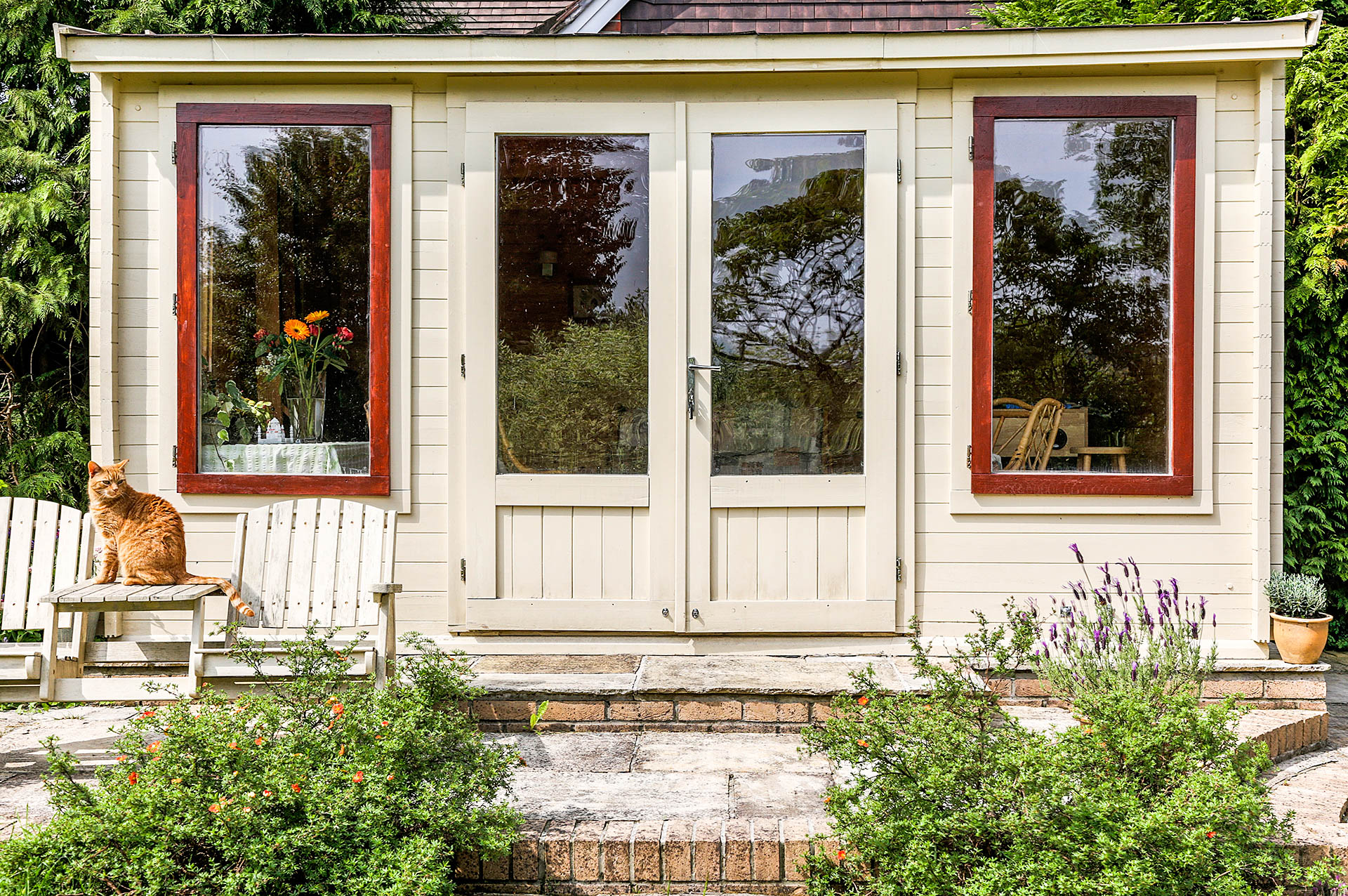You are here: Can I claim back tax for working in a garden room?
With more of us working from home in the wake of the pandemic, offices in cities are sitting empty. Homeowners are also considering how they can work remotely without spending all day perched at the kitchen table or in the corner of a bedroom. For many, a garden room is the ideal solution.
Fully insulated and both more substantial and better looking than your average garden shed, garden rooms aren’t cheap, but they are a convenient fix for home workers who need more space but don’t want the hassle – or expense – of an extension.

Reclaiming running costs
According to HMRC, “you may be able to claim tax relief for additional household costs if you have to work at home on a regular basis, either for all or part of the week. This includes if you have to work from home because of coronavirus (COVID-19).” However, “you cannot claim tax relief if you choose to work from home.”
The distinction between being required to work from home, either because you’re self-employed or because of the pandemic, and simply preferring to work there is key. If you could work in a regular office, you should – at least in the taxman’s eyes.
You can claim relief on several costs, including metered water, gas and electricity, business phone calls and specifically dial-up internet access. If you keep a full record of your bills and receipts, you should be able to claim back the full amount that relates to your garden room. So, if it comprised, say, 10% of the overall living space on your property, and was only used for working, you could claim 10% of each of those costs. Check with your accountant.
If you don’t keep your bills and receipts, you can claim relief on (not of) a flat £6 a week for costs incurred from 6 April 2020 onwards. That is less generous than it sounds, as you only get a proportion of the £6, as determined by your tax band. If you pay basic rate (20%), you’d therefore only receive a fifth of £6, so £1.20. If you pay higher rate or additional rate, for salaries above £50,271 and £150,000 respectively, you’d receive £2.40 or £2.70, as appropriate.
Reclaiming the cost of the building
Expenses for what’s termed ‘plant and machinery’ can be reclaimed as a capital allowance. Plant and machinery includes ‘parts of a building considered integral’ but not, unfortunately, ‘buildings’, or ‘land and structures’, which would appear to exclude the cost of buying and erecting your garden room.
Capital allowances can be claimed on what you need to kit out the room, though, including chairs and desks. Further, KRW Accountants explains that, “in addition, it will be possible to claim a capital allowance for the cost of any thermal insulation, even where it forms part of the structure. The same is often also true for certain wiring and plumbing costs.” You could also reclaim the VAT on the purchase of the room itself, if you’re self-employed and VAT registered.
Accounting for personal use
In most cases, you need to prove that the garden room is used solely for business purposes if you want to gain the full tax benefits. If it is a mixed-use environment, you’ll need to apportion its use and may need to make some allowance for personal use on your Self Assessment tax return. As JF Financial notes, “if you use the garden office for personal use, then there will be a personal tax impact of this benefit in kind, unless your personal use is very minimal. However please be aware that it can be difficult to prove no/ minimal personal use to HMRC, so there is a risk of a benefits in kind tax charge, even with no personal use.”
With this risk of personal liability, and the minimal benefit of claiming your running costs against tax (which will net around £62 a year when claiming 20% of £6 at basic rate), you might be disinclined to make any claim against your tax for working in a garden room. Asking your employer to acknowledge the savings they’re making by having you off site in the form of a small pay rise, while gutsy, might be a better bet.
As always, check with your accountant for any hidden benefits – or disincentives – and to make sure you stay on the right side of the law, as everyone’s financial situation is unique.
If you are considering extending or altering your home, you may find some of these services useful:
Architectural Design Services
Find local Architectural Design experts
Find an Interior Designer
Find details of local Interior Designers
Help with Planning Permission
Find Professionals who can help you apply
Builders
Find local help with a building project
Structural Inspections
Find an expert to carry out a structural inspection
Structural Calculations
Find an expert to provide Structural Design Calculations
Building Surveys
I want a local surveyor to do a Building Survey for me